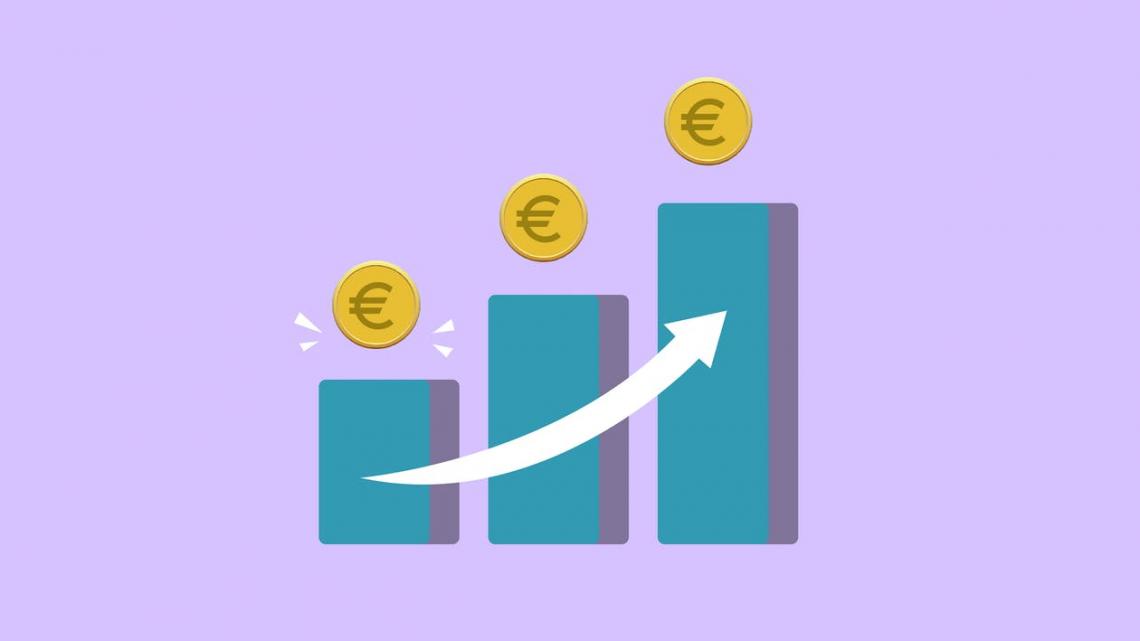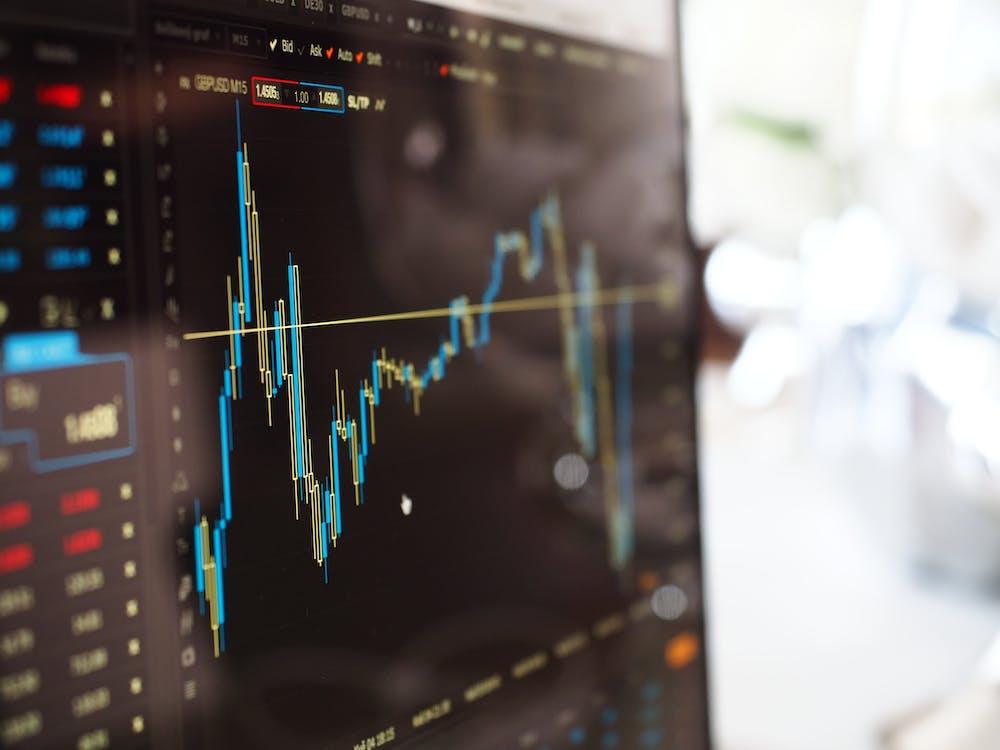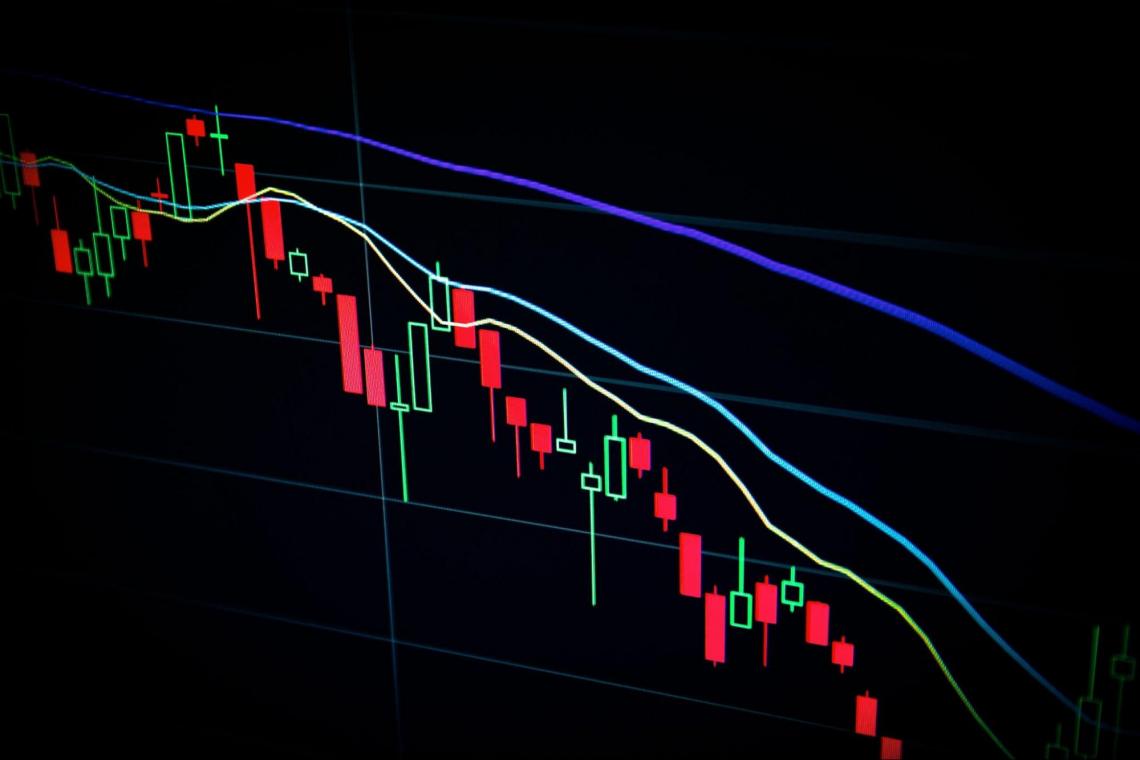Selloff
Merchants selling their goods in large quantities at a price lower than the market price.
Sell-off in the market generally refers to merchants selling their goods in large quantities at a price lower than the market price.

The reason may be that the changes in the market and policies cause the merchants to sell their goods as soon as possible to avoid greater losses in the future.
In the stock market, selling is when a large number of investors sell their shares simultaneously in a short period, leading to a sharp fall in stock market prices.
This exacerbated the panic among investors, leading to more investors wanting to sell their shares. However, at this time, the supply of stocks in the market exceeds the demand, so the price does not rise but keeps falling.
There are many reasons for stock selling, such as sudden changes in regional policies that affect the company's future profitability and natural disasters' impact on regions and companies.
There may also be disruptions in the company's product and technology supply chain due to international political issues, making investors less confident about the company's future. When management wants to cash out, it can lead to a sell-off.

When investor confidence in companies declines and panic sets in, selling can follow. The drop in market share prices caused by a selloff is usually sharp but does not last very long.
Selling is common in the stock market because risk is always present. For example, when a company reports earnings, it can trigger a selloff if investors believe expected earnings will fall in the future or if market conditions change.
A fall in prices due to panic selling usually pushes a company's share price too low and out of line with its value. However, there is typically a period of some recovery in stock prices after a selloff. The price will return to its value level, and sometimes the price will rebound quickly, even to the previous level.
What will happen in the Selloff?
The price of a commodity is largely determined by supply and demand. When demand exceeds supply, prices rise. When supply exceeds demand, prices fall. When it occurs, more investors want to sell their shares than are interested in the stock.

Sellers want to sell their shares quickly to avoid bigger losses in the future, whereas buyers can lower the purchase price to buy the stock.
They don't worry that they won't be able to buy the stock at the quoted price because there are always people who want to sell quickly and are willing to sell at a lower price. This leads to further falls in share prices.
This will continue until the market calms down and there is a further valuation of the stock.
The asset cut-rate sale was a huge blow to most investors. A sudden, sharp fall in asset prices at one point can leave investors reeling. This often happens after unexpected events, such as a natural disaster, breaking news, etc.
It makes investors less confident about the asset's future earnings and will sell their assets. When asset prices fall in the market, investors panic. Their psychology will encourage them to sell their assets as quickly as possible.
They may decide they were wrong in their bullish forecasts for the asset and need to sell their holdings quickly to cut their losses. Unfortunately, such behavior is a vicious circle in which investor panic further leads to a fall in stock prices, intensifying the market's panic.
For some investors, this may be their best chance to invest.

When a market cut-rate sale rapidly depreciates an asset, and its price falls far below the asset's value, the investor can buy it at a lower price. When market sentiment calms, the asset returns to its original price. Investors can also earn interest rate differentials.
There is a real case: In 1996, Geico nearly went bankrupt because of management's mismanagement. Its share price was grossly undervalued. Buffett took full ownership of Geico when many people were writing it off.
After the management change, business performance returned to normal, and the stock price began to recover. That led to huge stock gains for Buffett. So what is a disaster for ordinary investors is a great investment opportunity for others.
How to avoid losses in a selloff

Ways to avoid the losses are:
1. Don't panic!
Stock prices can fall sharply during a market cut-rate sale. It creates a sense of panic. Many ordinary investors will save their savings of life to invest as they hope to increase their wealth by investing.
But when the cut-rate sale comes, their assets will fall sharply. This gives them a very strong incentive to sell. Of course, they will want to sell quickly to avoid further erosion but doing so will only cost them their wealth.

This time should do the first thing, as far as possible, to let his mood calm down. Don't let the market manipulate your emotions, making you anxious and impulsive. Selling blindly at this point could cause irreparable losses.
In some people's view, sell your assets as quickly as possible in the short term, when the future assets fall further. Investors will be smug about their earlier decision to sell. The decision saved itself further criticism.
But the truth is that although it may appear that your asset is not further diminished, the consequence is that your asset cannot return to its proper price. So, the investment was a loss for the investor. So, for the first time, we should calm down, not sell at once.
2. Analysis of the market
What we need to do after we calm down after a market selloff is to analyze the market. Of course, no one can predict exactly what the market will do in real-time, but when a cut-rate sale occurs, one thing investors can do is analyze the market to find out why it happened.
Think of yourself as an outsider watching what's going on in the market. Such thinking helps investors to analyze the current situation of the market.
Once you find out why you want to sell, you can come to a general conclusion about whether you want to hold on to the stock or the asset. For example, is the company's stock losing value, or is the stock just falling because people are panicking?
If the latter, this is not the time for investors to retreat. Investors should buy stocks at the bottom and make more profit. It is unwise to fear or sell stocks. Only after careful consideration can you come to the best decision for yourself.

3. Be a long-term investor.
As an ordinary investor, you should avoid short-term trading. Because the operation of ultra-short trading is difficult, it is necessary to have a high acuity to the market.
As for the stock of high operation, the risk is great, and the procedure is difficult, which is unsuitable for ordinary investors. Investors are bombarded with online trading information and expert chatter during a selloff. It isn't easy to calm down as a typical investor at this time.
When the market manipulates investor sentiment, it is easy for investors to forget their investment objectives and sell. When the cut-rate sale comes, short-term investors will feel more pain because they need to do quick arbitrage in the short term, but the stock's decline won't be good for them.
But for long-term investors, a short-term drop doesn't do much harm. Instead, they focus on good investments that they believe will bring more profits in the future.
And it turns out that most investors can make money when they own a good stock for a long time. This is because their patience will not be affected by short-term dips.
4. Don't follow the decisions of others.
People don't know what to do when the market starts to panic. So, there will be a lot of analysis in the market and on the Internet, and many predictions about where things are going.
It is not a good decision to sell or buy the same way as others because every investor has a different background and strategy. . Using the same conclusion will only yield bad results. Blindly following the decisions of the market or others is easy to cause losses.

As a good investor, you can't follow what others say. You should do your own research, choose an excellent asset, and trust your own judgment instead of blindly following others. When blindly following leads to financial losses, no one is responsible for them but oneself.
Collect data by industry and by company. Put the data together and study it to come up with your own answers, rather than blindly listening to others.
The case of Selloff

Case studies related to the cut-rate sale are:
1. Black Monday
March 9, 2020, is known as Black Monday in the U.S. stock market. That day saw a sell-off in the American stock market. As the spread of COVID-19 intensifies. More than 100 countries around the world have announced cases of COVID-19 in their countries.
The situation has led to massive flight suspensions, a major blow to international tourism and a virtual halt to business. Companies around the world are facing the problem of survival.
At the same time, due to the impact of the pandemic, international oil prices have dropped by more than 20 percent since the beginning of 2020. OPEC hopes to work with Russia to cut production in an effort to stabilize oil prices.
But negotiations on a production cut agreement have not been smooth. That led to Saudi Arabia's decision to pump more oil, to 12 million barrels a day. Oil prices plunged 30% on the international crude market on Monday March 9th.

The two events sent all three major U.S. stock indexes down in early trading Monday, with the Nasdaq down 7.2 percent, the Dow 7.79 percent and the S&P 500 down 7 percent. All three major stock indexes suffered a circuit breaker and trading was suspended for 15 minutes.
This is due to the impact of the pandemic and the sudden drop in oil prices on the international oil market. Investors are afraid that the market turmoil will affect the value of their own stocks, so a large number of assets are sold, resulting in the stock market plunge.
2. GameStop Corp. shares plunged
GameStop Corp. shares plunged on July 8, 2022, falling 6.9% as the market opened. The reason was that the company fired its chief financial officer and said it would cut more jobs to deal with the impact of a slumping market.
3. Sell tech stocks
The tech-heavy Nasdaq peaked in November 2021, but by May 2022 it was down 32.5%. Tech stocks sold off in early 2022. The reason is that the global industrial chain has been shaken, and investors have less information about technology stocks.
With a long history of tech outperformance, stretched valuations have led to a selloff in tech stocks this year.
The impact of inflation and the pandemic on the economy has been huge this year. Because tech stocks have been the focus of investors, they have fallen faster than other stocks as investors' expectations for their future have declined.
Researched and authored by Lay Shang | Linkedin
Free Resources
To continue learning and advancing your career, check out these additional helpful WSO resources:




or Want to Sign up with your social account?